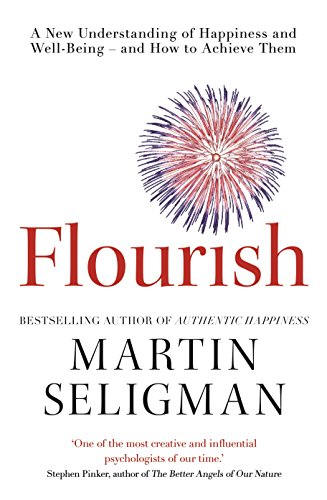Catholic Medical Quarterly Volume 71(4) November 2021
Book Review
Flourish: A New Understanding of Happiness
and Well-Being-and How to Achieve Them
by Martin Seligman. Publ: Nicholas Brealey
Publishing
Reviewed by Dr Pravin Thavasathan
 As a general
rule, I avoid secular books about how to achieve happiness. I think of
what humanistic psychology did inside the Catholic Church in the sixties
and seventies. It was a disaster brought on in the name of achieving
happiness. As far as I am aware, Seligman is not religious. And yet, he
has said things in this book that appear to be in harmony with Christian
beliefs.
As a general
rule, I avoid secular books about how to achieve happiness. I think of
what humanistic psychology did inside the Catholic Church in the sixties
and seventies. It was a disaster brought on in the name of achieving
happiness. As far as I am aware, Seligman is not religious. And yet, he
has said things in this book that appear to be in harmony with Christian
beliefs.
Positive psychology can be used by people with no psychopathology. It aims to prevent mental distress but also promote mental well-being. It looks at ways in which we can flourish, even in times of suffering. Its insights are in harmony with practicing the Christian virtues. The five elements are positive emotion, engagement, relationships, meaning and accomplishments. Without positive emotion, we feel depressed. Without engagement, our lives lack commitment. Without relationships, we are lonely. And without meaning, our lives are shallow. The Jewish psychiatrist and Holocaust survivor Viktor Frankl had much to say on this subject. Accomplishment does not mean achieving great things. It means setting ourselves realistic goals, without which our lives are static.
The practice of our faith ought to lead us to all these things. If it does not, then there is something wrong with the way we practice it.
Gratitude is a very prominent word in positive psychology as it is in Christianity. Much the same can be said of forgiveness. If we fail to forgive, we are not living authentically Christian lives. And it damages our mental health. Positive psychology as much as Christianity helps us avoid playing the victim role. Such a stance leads us not to take responsibility for ourselves.
In Catholic teaching, the practice of the virtues is really a practice of good habits with the help of grace. Positive psychology takes the practice of good habits seriously. And both positive psychology and Christianity encourage little steps at a time.
There is, of course, no place for grace in positive psychology. And it fails to recognize moral absolutes.
In conclusion, we may say that Positive approaches work. Ask the saints.
